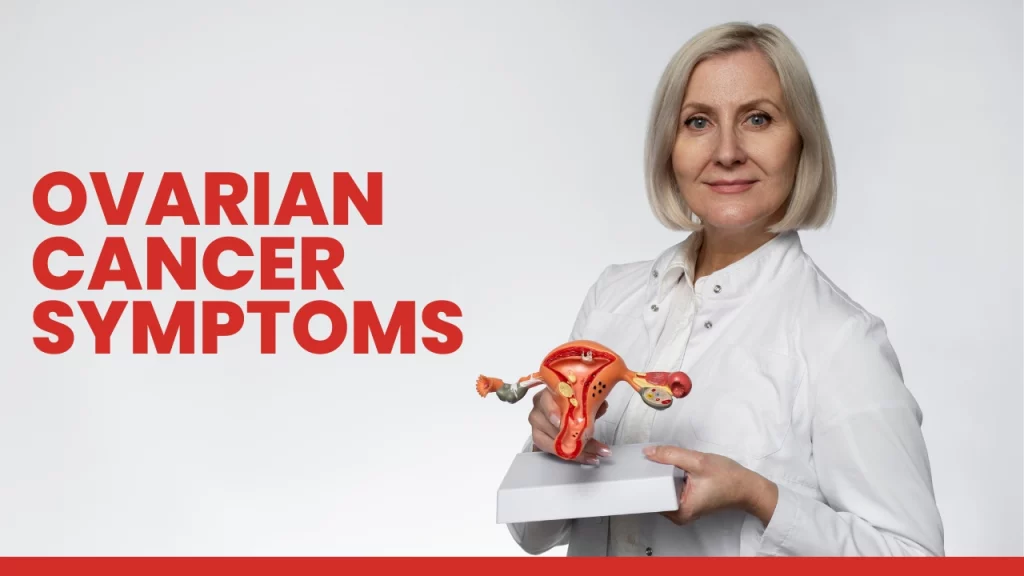Ovarian Cancer Symptoms: 10 Early Signs Women Ignore

The uncomfortable truth is that our bodies send us small memos in the form of weird signs and symptoms before they send us emergencies; the only thing is that most times, we don’t know what to make of them and end up ignoring them. Between meetings, work stress, social gatherings, and taking care of others, women have somehow mastered the art of ignoring their own symptoms.
Ovarian cancer is one such serious and deadly disease that silently creeps up on you in the form of very normal symptoms like bloating, fatigue, and very vague aches. These signs of ovarian cancer seem so common that 1 in 5 women dismiss them for over 6 months before seeking help. But these discomforts actually have a pattern because it’s the body’s way of signaling that something serious is going on.
Read More: 7-Day Meal Plan for Cancer Patients
At OneHealth, we’ve helped a lot of women understand their symptoms for over a decade. This isn’t about making you afraid —it’s actually about empowerment. Your body speaks to you in a language, which is the language of symptoms. In this article, let me show you how to listen. These are some ovarian cancer symptoms you should never ignore.
Signs of Ovarian Cancer in Females
- Persistent Bloating
- Pelvic Pain
- Feeling Full Faster
- Bathroom Trips More Frequent
- Weight Changes
- Low Energy Levels
- Bowel Habits
- Painful Intercourse
- Back Pain
- Periods Behaving Strangely
- Early screening and diagnostics
- Diet plans to boost immunity
- Stress management through yoga and meditation
One of the most common symptoms of ovarian cancer is bloating that just won’t go away. If your stomach feels swollen for weeks, especially after eating, it can be serious and should not be ignored. Feeling bloated sometimes is normal, but weeks of abdominal swelling is not okay and should be checked.
If there is always a constant pain in your pelvis that feels different from the cramps you get while you are on your period, which seems to just always be there, you should definitely see a doctor for it. Many women ignore it by thinking it is “that time of the month,” but your body might be trying to alarm you .
If you are suddenly full after only a few bites of your favorite meal, something can be wrong. Many women start thinking that this happens due to slower metabolism as they age, but actually it can be a symptom of ovarian cancer in females, which gets misinterpreted easily.
If you are not drinking more water than usual but still using the washroom a lot more, maybe you need to think this one out. While UTIs are common and happen to women all the time, if there is no infection but you are still urinating more often, then it could be a sign of more ovarian pressure on your bladder.
If you are losing weight without even trying, it’s not something positive. Or if you have suddenly gained weight around your waist without making any changes to your diet whatsoever, it could be a sign. Sudden weight loss or gain—especially around the abdomen—can be one of the most subtle signs of ovarian cancer.
If you are feeling tired even after a full night of good sleep, and even black coffee is not helping you feel energetic, then something might be wrong. This is a sign that gents easily ignore, thinking that you are just stressed, but constantly feeling that this is not normal and should be investigated further.
New constipation, diarrhea, or other digestive disturbances that just keep on happening no matter what you do to fix them are more than just your diet. Your gut could be reacting to changes in your body and could be signaling more ovarian pressure.
If intercourse has suddenly become painful and there is no obvious reason you can attribute to it, like dryness or infection, then it could be one of those ovarian cancer symptoms that women are shy to discuss and end up enduring or ignoring.
It’s not just a normal muscle strain if it is persistent and is not getting any better even with enough rest, massage, or painkillers. Especially if you feel it is happening along with some other symptoms we discussed, you need to take it seriously and get it checked.
If you feel like your periods are behaving a little weird, then it can be a multitude of things behind it. But if you are experiencing something serious, especially like post-menopausal bleeding—then you need some serious medical attention.
How One Health Can Help?
At OneHealth by Dr. Shikha Sharma, we don’t just treat diseases—we actually try and prevent them. Our team of expert doctors and nutritionists works with you to make the perfect personalized health plans. We blend holistic nutrition and Indian traditional medicine to make it the best of both worlds.
If you’re experiencing any of these ovarian cancer symptoms, our specialists can guide you with:
Contact us today to book a free consultation with our experts for early detection and better health.
Frequently Asked Questions
Qn 1. How do you detect ovarian cancer early?
Ans: Pelvic exams, ultrasounds, and CA-125 blood tests help you detect it early.
Qn 2. At what age does ovarian cancer start?
Ans: It’s more common in women over 50, but younger women can also develop ovarian cancer. Regular check-ups are the most important, especially if you have a family history.



 Home
Home 